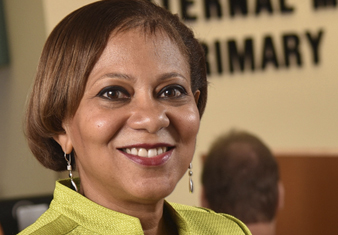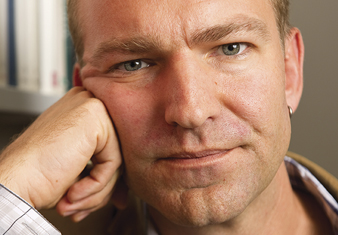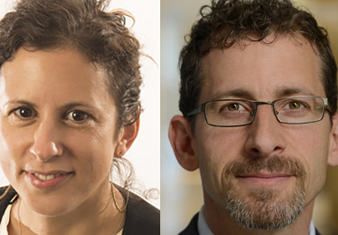
Room to Take Risks
Three new awards provide the freedom to bring big ideas to life.
The key to Johns Hopkins’ ability to attract and retain the best and brightest faculty is to make sure they have the freedom to pursue their big ideas. The university is doing just that with three major annual awards to fund “out-of-the-box thinking … that might lead to breakthrough inventions and discoveries.”
Those are the words of Sharon Gerecht, a stem cell researcher and the inaugural winner of the President’s Frontier Award, which was given for the first time in January 2015. Two alumni, trustee Louis J. Forster and Kathleen M. Pike, established the award to support exceptional scholars among the Johns Hopkins faculty who are on the cusp of transforming their fields. Gerecht, of the Whiting School of Engineering, and 2016 winner Scott Bailey, of the Bloomberg School of Public Health, and 2017 winner Michael Hersch, of the Peabody Institute each received $250,000 to pursue novel endeavors. Awardees will be named in each of the next two years, totaling a $1.25 million investment in groundbreaking discovery and creative ventures.
The university also established the Catalyst and Discovery awards in 2015 to support creativity and collaboration among Johns Hopkins faculty. They are part of a $15 million university commitment to faculty research over three years.
The Catalyst Awards provide up to $75,000 for individuals with between three and 10 years of experience in a tenure-track faculty position who are undertaking exceptional research or creative endeavors. The awards help these individuals launch their promising careers during the crucial years when startup funds are depleted and external funding or other support may be elusive.
The Discovery Awards focus on sparking new interactions among faculty from across the university. Teams receive up to $150,000, and a number of the awards are reserved for faculty teams that will use the funds to gather preliminary data while they seek an externally funded, large-scale grant or cooperative agreement.
To date, 71 early-career scholars have received Catalyst Awards and 47 cross-divisional faculty teams have received Discovery Awards. Their research encompasses such endeavors as engineering artificial lymph nodes, composing a new symphony, and reverse engineering ancient ceramics.
Photo: President Daniels presents the President’s Frontier Award to Scott Bailey.


